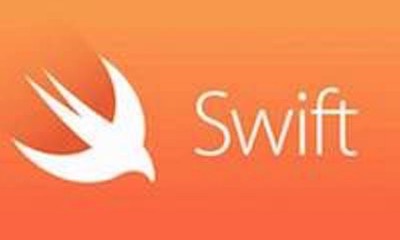今天大概看了一下网上关于Google I/O的详细内容,当然主要还是关于kotlin,随便找打之前的的小demo,突然又想到上周深圳的Swift大会,顿时感觉以后Swift和kotlin与占有很大一部分市场,就寻找了一份关于kotlin和Swift代码的异同之处,也好方便kotlin和Swift程序员区分与学习…..
|  |
|  |
|
下面是一些关于Swift和Kotlin语法和细节上的区别,出自网络!
Hello World
Swift
print("Hello, world!")
kotlin
println("Hello, world!")
Variables And Constants
Swift
var myVariable = 42
myVariable = 50
let myConstant = 42
kotlin
var myVariable = 42
myVariable = 50
val myConstant = 42
Explicit Types
Swift
let explicitDouble: Double = 70
kotlin
val explicitDouble: Double = 70.0
Type Coercion
Swift
let label = "The width is "
let width = 94
let widthLabel = label + String(width)
kotlin
val label = "The width is "
val width = 94
val widthLabel = label + width
String Interpolation
Swift
let apples = 3
let oranges = 5
let fruitSummary = "I have \(apples + oranges) " +
"pieces of fruit."
kotlin
val apples = 3
val oranges = 5
val fruitSummary = "I have ${apples + oranges} " +
"pieces of fruit."
Range Operator
Swift
let names = ["Anna", "Alex", "Brian", "Jack"]
let count = names.count
for i in 0..<count {
print("Person \(i + 1) is called \(names[i])")
}
// Person 1 is called Anna
// Person 2 is called Alex
// Person 3 is called Brian
// Person 4 is called Jack
kotlin
val names = arrayOf("Anna", "Alex", "Brian", "Jack")
val count = names.count()
for (i in 0..count - 1) {
println("Person ${i + 1} is called ${names[i]}")
}
// Person 1 is called Anna
// Person 2 is called Alex
// Person 3 is called Brian
// Person 4 is called Jack
Inclusive Range Operator
Swift
for index in 1...5 {
print("\(index) times 5 is \(index * 5)")
}
// 1 times 5 is 5
// 2 times 5 is 10
// 3 times 5 is 15
// 4 times 5 is 20
// 5 times 5 is 25
kotlin
for (index in 1..5) {
println("$index times 5 is ${index * 5}")
}
// 1 times 5 is 5
// 2 times 5 is 10
// 3 times 5 is 15
// 4 times 5 is 20
// 5 times 5 is 25
Arrays
Swift
var shoppingList = ["catfish", "water",
"tulips", "blue paint"]
shoppingList[1] = "bottle of water"
### kotlin
val shoppingList = arrayOf("catfish", "water",
"tulips", "blue paint")
shoppingList[1] = "bottle of water"
Maps
Swift
var occupations = [
"Malcolm": "Captain",
"Kaylee": "Mechanic",
]
occupations["Jayne"] = "Public Relations"
kotlin
val occupations = mutableMapOf(
"Malcolm" to "Captain",
"Kaylee" to "Mechanic"
)
occupations["Jayne"] = "Public Relations"
Empty Collections
Swift
let emptyArray = [String]()
let emptyDictionary = [String: Float]()
kotlin
val emptyArray = arrayOf<String>()
val emptyMap = mapOf<String, Float>()
Functions
Swift
func greet(_ name: String,_ day: String) -> String {
return "Hello \(name), today is \(day)."
}
greet("Bob", "Tuesday")
kotlin
fun greet(name: String, day: String): String {
return "Hello $name, today is $day."
}
greet("Bob", "Tuesday")
Tuple Return
Swift
func getGasPrices() -> (Double, Double, Double) {
return (3.59, 3.69, 3.79)
}
kotlin
data class GasPrices(val a: Double, val b: Double,
val c: Double)
fun getGasPrices() = GasPrices(3.59, 3.69, 3.79)
Variable Number Of Arguments
Swift
func sumOf(_ numbers: Int...) -> Int {
var sum = 0
for number in numbers {
sum += number
}
return sum
}
sumOf(42, 597, 12)
kotlin
fun sumOf(vararg numbers: Int): Int {
var sum = 0
for (number in numbers) {
sum += number
}
return sum
}
sumOf(42, 597, 12)
// sumOf() can also be written in a shorter way:
fun sumOf(vararg numbers: Int) = numbers.sum()
Function Type
Swift
func makeIncrementer() -> (Int -> Int) {
func addOne(number: Int) -> Int {
return 1 + number
}
return addOne
}
let increment = makeIncrementer()
increment(7)
kotlin
fun makeIncrementer(): (Int) -> Int {
val addOne = fun(number: Int): Int {
return 1 + number
}
return addOne
}
val increment = makeIncrementer()
increment(7)
// makeIncrementer can also be written in a shorter way:
fun makeIncrementer() = fun(number: Int) = 1 + number
Map
Swift
let numbers = [20, 19, 7, 12]
numbers.map { 3 * $0 }
kotlin
val numbers = listOf(20, 19, 7, 12)
numbers.map { 3 * it }
Sort
Swift
var mutableArray = [1, 5, 3, 12, 2]
mutableArray.sort()
kotlin
listOf(1, 5, 3, 12, 2).sorted()
Named Arguments
Swift
func area(width: Int, height: Int) -> Int {
return width * height
}
area(width: 2, height: 3)
kotlin
fun area(width: Int, height: Int) = width * height
area(width = 2, height = 3)
// This is also possible with named arguments
area(2, height = 2)
area(height = 3, width = 2)
Declaration
Swift
class Shape {
var numberOfSides = 0
func simpleDescription() -> String {
return "A shape with \(numberOfSides) sides."
}
}
kotlin
class Shape {
var numberOfSides = 0
fun simpleDescription() =
"A shape with $numberOfSides sides."
}
Usage
Swift
var shape = Shape()
shape.numberOfSides = 7
var shapeDescription = shape.simpleDescription()
kotlin
var shape = Shape()
shape.numberOfSides = 7
var shapeDescription = shape.simpleDescription()
Subclass
Swift
class NamedShape {
var numberOfSides: Int = 0
let name: String
init(name: String) {
self.name = name
}
func simpleDescription() -> String {
return "A shape with \(numberOfSides) sides."
}
}
class Square: NamedShape {
var sideLength: Double
init(sideLength: Double, name: String) {
self.sideLength = sideLength
super.init(name: name)
self.numberOfSides = 4
}
func area() -> Double {
return sideLength * sideLength
}
override func simpleDescription() -> String {
return "A square with sides of length " +
sideLength + "."
}
}
let test = Square(sideLength: 5.2, name: "square")
test.area()
test.simpleDescription()
kotlin
open class NamedShape(val name: String) {
var numberOfSides = 0
open fun simpleDescription() =
"A shape with $numberOfSides sides."
}
class Square(var sideLength: BigDecimal, name: String) :
NamedShape(name) {
init {
numberOfSides = 4
}
fun area() = sideLength.pow(2)
override fun simpleDescription() =
"A square with sides of length $sideLength."
}
val test = Square(BigDecimal("5.2"), "square")
test.area()
test.simpleDescription()
Checking Type
Swift
var movieCount = 0
var songCount = 0
for item in library {
if item is Movie {
movieCount += 1
} else if item is Song {
songCount += 1
}
}
kotlin
var movieCount = 0
var songCount = 0
for (item in library) {
if (item is Movie) {
++movieCount
} else if (item is Song) {
++songCount
}
}
Pattern Matching
Swift
let nb = 42
switch nb {
case 0...7, 8, 9: print("single digit")
case 10: print("double digits")
case 11...99: print("double digits")
case 100...999: print("triple digits")
default: print("four or more digits")
}
kotlin
val nb = 42
when (nb) {
in 0..7, 8, 9 -> println("single digit")
10 -> println("double digits")
in 11..99 -> println("double digits")
in 100..999 -> println("triple digits")
else -> println("four or more digits")
}
Downcasting
Swift
for current in someObjects {
if let movie = current as? Movie {
print("Movie: '\(movie.name)', " +
"dir. \(movie.director)")
}
}
kotlin
for (current in someObjects) {
if (current is Movie) {
println("Movie: '${current.name}', " +
"dir. ${current.director}")
}
}
Protocol
Swift
protocol Nameable {
func name() -> String
}
func f<T: Nameable>(x: T) {
print("Name is " + x.name())
}
kotlin
interface Nameable {
fun name(): String
}
fun f<T: Nameable>(x: T) {
println("Name is " + x.name())
}
Extensions
### Swift
extension Double {
var km: Double { return self * 1_000.0 }
var m: Double { return self }
var cm: Double { return self / 100.0 }
var mm: Double { return self / 1_000.0 }
var ft: Double { return self / 3.28084 }
}
let oneInch = 25.4.mm
print("One inch is \(oneInch) meters")
// prints "One inch is 0.0254 meters"
let threeFeet = 3.ft
print("Three feet is \(threeFeet) meters")
// prints "Three feet is 0.914399970739201 meters"
kotlin
val Double.km: Double get() = this * 1000
val Double.m: Double get() = this
val Double.cm: Double get() = this / 100
val Double.mm: Double get() = this / 1000
val Double.ft: Double get() = this / 3.28084
val oneInch = 25.4.mm
println("One inch is $oneInch meters")
// prints "One inch is 0.0254 meters"
val threeFeet = 3.0.ft
println("Three feet is $threeFeet meters")
// prints "Three feet is 0.914399970739201 meters"

